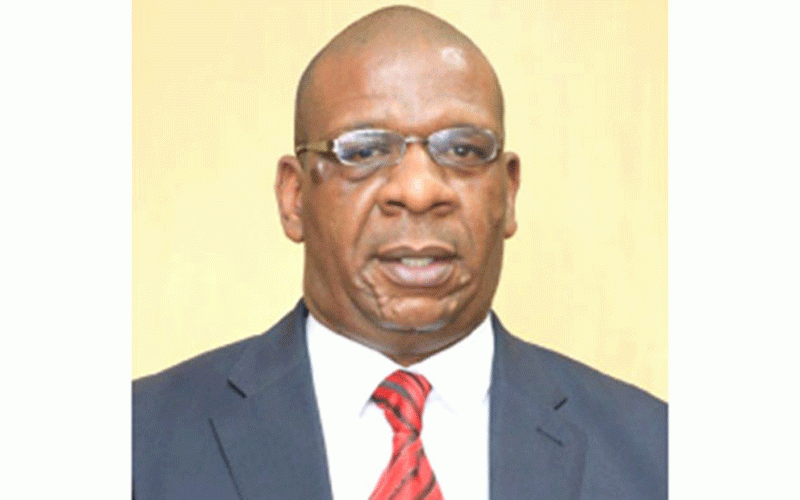
THERE have been positive sentiments within business circles in Zimbabwe that the new Zimbabwe Gold (ZiG) currency has stabilised the exchange rate and tamed inflation.
Looking at the trends, the new ZiG has remained strong since its introduction in April 2024. The Zimbabwe Reserve Bank (RBZ) governor, John Mushayavanhu has echoed a zero-tolerance towards parallel market activities and has pledged to consult widely when crafting future monetary policy statements.
That said, the big question has always been around sustaining the current levels of stability in the face of overarching fiscal and economic pressures evident in the environment. Confidence and behavioural aspects also remain an important determinant of exchange rate stability.
We have noted with concern that most individuals, households, and businesses in Zimbabwe prefer to hold money in the form of cash (mostly US dollars).
The motives of holding cash can be derived from the functional definition of money. John Hides (1967) says that money is defined by its functions. Anything is money, which is used as money, implying in simple terms, money is what money does. Some have defined money based on the legal terms. Anything backed by law to be accepted by everyone for payment is called money. The two primary functions of money are to act as a medium of exchange or payment and as a unit of account.
Liquidity preference
Money is indeed a vital instrument in macroeconomic management given that it is crucial for growth and development.
In fact, money is considered a lubricant that oils the engine of economic growth; too little of it inside the engine will slow the pace of growth; too much of it will have the same effect. Economic agents in Zimbabwe prefer to be liquid given some of the key advantages of holding cash. The liquidity preference theory states that cash is the most accepted liquid asset and more liquid investments are easily cashed in for their full value.
- Awards target married couples
- Awards target married couples
- Sibanda living his writing dream
- Pomona deal under spotlight as experts meet
Keep Reading
The theory concentrates on the demand and supply for money as the interest rate determinants. According to this proposition that an interest rate is the price paid for borrowed money, people will rather keep cash than invest cash in assets.
Hence, people prefer liquid cash. People also intend to save a percentage of their income. The amount that will be held in the form of cash and the amount that will be spent depend on liquidity preference.
People will prefer to hold cash since it is the most liquid asset and the reward for parting with liquidity is interest, whose rate is determined by the economic demand and supply of money.
Motives for the demand of liquidity
According to Keynesian economists, money has a role to play, which is as a store of value. As a result, money can influence economic activity, the level of income and employment.
A major difference is the school of thought is that classical economists integrated both the real and monetary sectors of the economy whilst Keynes clearly separated the monetary and real sectors of the economy. Keynes believed that in the monetary sector, the rate of interest is determined by demand for and supply of money. According to John Maynard Keynes, the demand for liquidity is determined by three motives;
Transactional motive: People prefer to have the liquidity to ensure that they can take part in necessary basic transactions because their income is not always available,
Precautionary motive: People prefer to have liquidity in order to be able to meet social unexpected problems that need unusual costs, and
Speculative motive: In order to speculate a fall in the prices of bonds, people retain liquidity. A decrease in the interest rate results in an increase in the quantity of money demanded by people until interest rates rise.
Thus, according to Keynes, money is not just demanded for transaction purposes but it is also demanded to take advantage by the liquidity of money. Overall, money plays a significant causal role. The degree of money’s importance depends upon its ability to alter money interest rates and upon the degree to which expenditure categories (consumption, investment, government outlays, and so forth) are sensitive to changes in the interest rate.
Overall, we think that the Keynesian school of thought with regards to money is relevant in modern day economics. For example, in Zimbabwe, the ZWL was unstable largely because of a lack of confidence as was reflective in a deteriorating exchange rate. This triggered inflation and had a negative impact on employment levels and production. As a result of these past developments, the general population in Zimbabwe now prefers to keep wealth in a relatively stable foreign currency (USD).
There is also a tendency of immediately convert amounts of local currency held so as to maintain purchasing power. When this happens, the net-effect is a stampede for foreign currency (US dollars).
In addition, there will also be an impact on interest rates given that sales and purchases on credit will take place at prices that compensate for the expected loss of purchasing power during the credit period, even if the period is short.
Given these risks, our advice for long-term investors will be to park funds in alternative investment vehicles or “near-USD assets”. In our view, the stock market also offers a feasible option to gain exposure in value-preserving assets. Blue chips like Delta Corporation, Innscor Africa and Econet Wireless Zimbabwe are a no-brainer!
- Matsika is a corporate finance specialist with SwitzView Wealth Management. — +263 78 358 4745 or [email protected].











